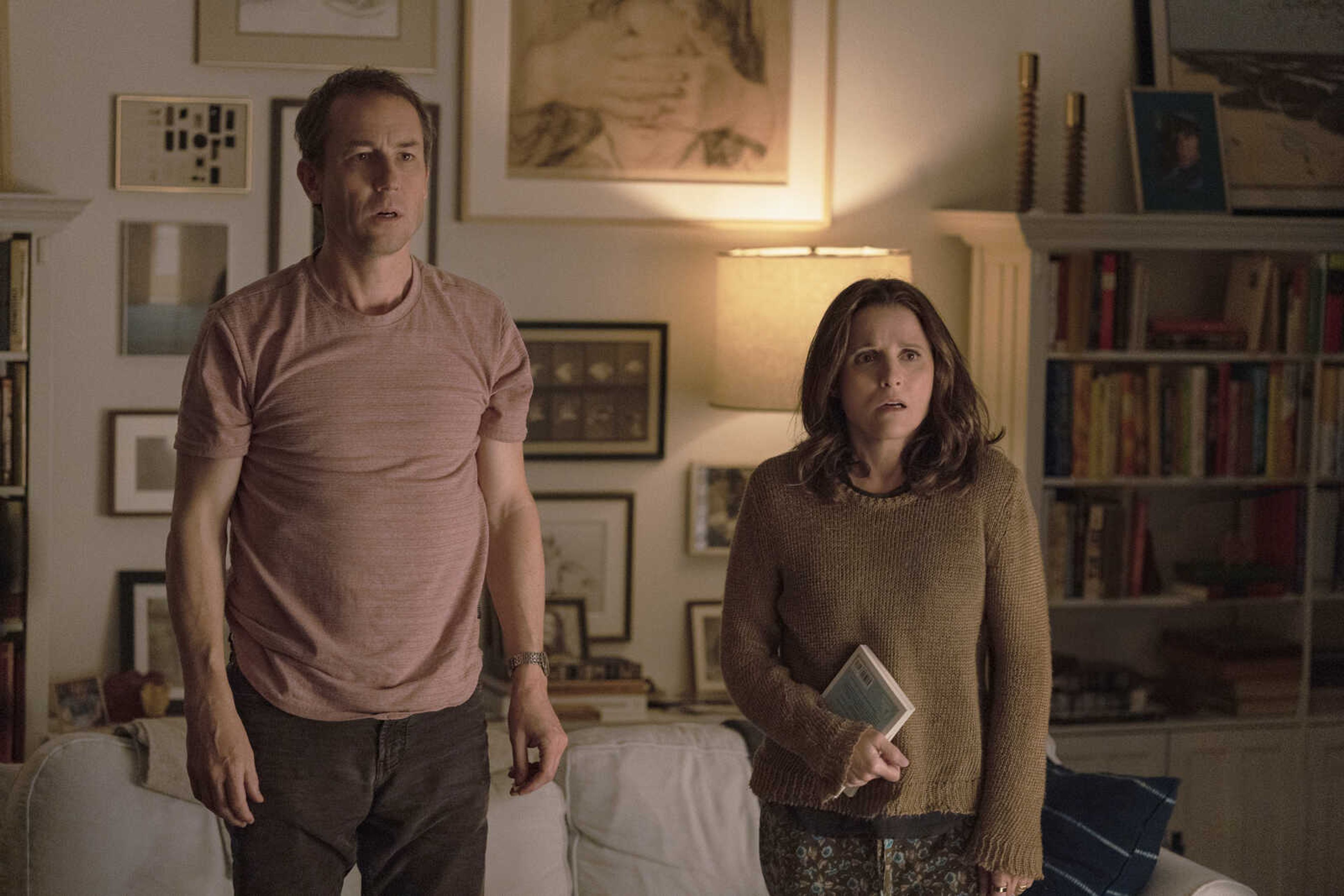CBS, NBC prepare to expand successful franchises amid worries
NEW YORK -- Network executives spend much of their time this month in darkened rooms, watching pilots for new shows and guessing which can become hits. Some of the guesswork is gone at CBS and NBC, where additional spinoffs of "CSI: Crime Scene Investigation" and "Law & Order" are already penciled in...
NEW YORK -- Network executives spend much of their time this month in darkened rooms, watching pilots for new shows and guessing which can become hits.
Some of the guesswork is gone at CBS and NBC, where additional spinoffs of "CSI: Crime Scene Investigation" and "Law & Order" are already penciled in.
They're the franchises, proven winners whose success is irresistible; it's no coincidence that CBS and NBC are the two most popular networks. The challenge comes in making sure expansion is not dilution.
"They're like Dairy Queens popping up all over the terrain," Todd Holland, executive producer of Fox's recently canceled drama "Wonderfalls," said with a touch of envy.
The fourth "Law & Order" entry will be known as "Law & Order: Trial By Jury," and will star Jerry Orbach, who's spent 12 years portraying Detective Lennie Briscoe on the mother ship.
"CSI: New York," the third in that series, has two well-known actors as centerpieces: Melina Kanakaredes of "Providence" and Gary Sinise.
It's easy to see why both are being made. They're the closest thing in television to a sure thing. Each of the three previous spinoffs has succeeded, in a business where the vast majority of new series fail. ABC, for example, hasn't had a hit new drama in years.
Jerry Bruckheimer, executive producer of the "CSI" series, admitted he was concerned that a spinoff would hurt the original show when CBS first approached him about making "CSI: Miami."
"As it turned out, it just bolstered the ratings for 'CSI,"' Bruckheimer said. "More eyeballs keep coming to it. The ratings kept going up and the ratings keep going up for 'Miami."'
"Law & Order: SVU," the first drama to get the original's brand, was originally just titled "Sex Crimes," said Dick Wolf, its creator and executive producer.
He readily agreed to change the title to include the "Law & Order" brand. "Nobody involved in this had just fallen off a turnip truck," he said.
"The value of the franchise is in the first six weeks that it's on the air, when there are 35, 36 new shows to sample," Wolf said. "The initial thrust of these shows is helped because the consumer says, well, I liked the last one, I might as well sample this one."
As a result, television is flooded with procedural crime dramas.
How much is too much?
A station manager at an NBC affiliate in Florida angered the network last fall when he publicly said the network was "like a one-trick pony. People like 'Law & Order' -- let's run it every night of the week."
ABC learned the dangers of overexposure the hard way a few years ago when it flooded its schedule with "Who Wants to Be a Millionaire" and drowned when the show collapsed.
"You never know you've reached the saturation point until you've reached it," ABC entertainment chief Lloyd Braun said. "There's no warning light that goes off. At what point is it too much? It's hard to say. I hope it's too much, too soon (for his competitors)."
(Though not soon enough to help him; Braun is reportedly losing his job because of ABC's struggles.)
Moonves and his NBC counterpart, Jeff Zucker, say they've sensed no signs of viewers tiring of their franchises.
"The audience for these shows continues to grow and I don't think you can argue against the success of the franchise," Zucker said.
Producer Holland sees a more insidious worry with the franchise expansions: a creeping creative conservatism and fewer opportunities to try new ideas. With four "Law & Order" shows and three "CSIs," there's little room for newcomers on NBC's and CBS' schedules.
Moonves, in fact, said last week he'd seen only one new pilot so far this spring.
Holland was surprised by the caliber of writers available to him when he made "Wonderfalls." There were fewer places to work for people who weren't interested in forensics or crime dramas, he said.
"Everyone in the creative community is hungry for something fresh and new, something that breaks free of the terrain," he said. "I think we're all concerned about it."
The criticism might have some validity, Bruckheimer said, if there weren't so many cable networks and other outlets for material.
"It would be unfair if the shows weren't working," Wolf said. "I think it's kind of carping to say the audience is wrong."
One thing each of these franchise shows has in common is that they are all self-contained stories with a resolution each week. No extended commitment is required, and viewers don't feel they've lost track of the story when they miss a few weeks.
That makes the shows even more valuable to their networks, since their ratings hold up better in repeats than serialized dramas. The shows all have profitable futures in syndication, too.
"I think that 'Law & Order' is kind of comfort food for the mind," Wolf said. "It's also visual nicotine. It's very seductive. You get that same nice, comfortable roller-coaster ride whenever you tune in."
------
On the Net:
http://www.cbs.com/primetime/csi/
http://www.nbc.com/Law--&--Order/
------
EDITOR'S NOTE -- David Bauder can be reached at dbauder"at"ap.org
Connect with the Southeast Missourian Newsroom:
For corrections to this story or other insights for the editor, click here. To submit a letter to the editor, click here. To learn about the Southeast Missourian’s AI Policy, click here.








